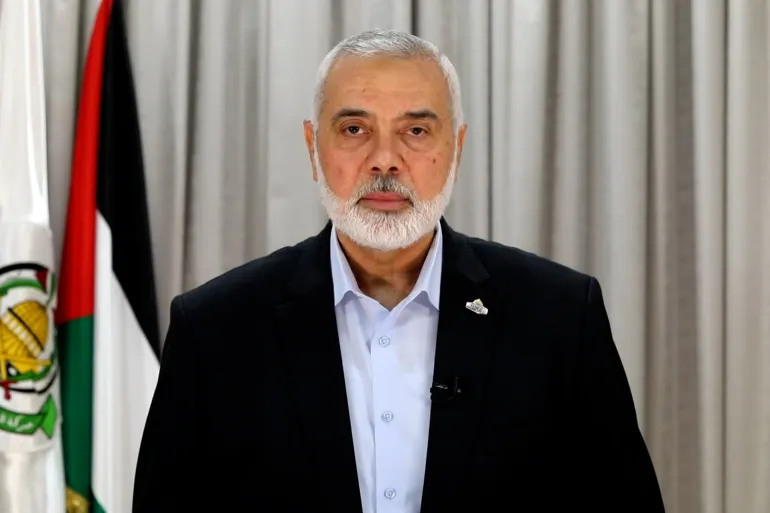
Qatar's threat to abandon mediation between Hamas and Israel opens the door for an increased role for Iran and Turkey
With Qatar announcing its intention to re-evaluate the mediation role it plays between Hamas and Israel and the US pressure on Qatar to force it to coerce Hamas to accept the deal of face terrorism charges for its fund transferred to Hamas, other states opened their door to Hamas political leaders.
Turkish President Recep Tayyip Erdogan's reception of the head of the political bureau of the Islamic Resistance Movement (Hamas), Ismail Haniyeh, on Saturday sparked the anger of Israeli politicians and newspapers.
It also signals an end or a diminished roles for Qatar and Egypt in any future negotiations to not only end the war, but also to arrange for post war Gaza and Palestine. It also reveals new realignments and emerging future coalitions in the new Middle East, after Jordan participated in the first direct military confrontation between Iran and Israel--as noted by some observers.
Andreas Craig, an expert on Middle East affairs at King's College in London, pointed out that Doha played a "decisive role" in concluding the truce last November, and it is "dissatisfied that everyone, especially Israel, does not acknowledge this."
However, in his opinion, it is unlikely that it will “withdraw from mediation efforts” after it “took control of the relationship” with Hamas, and he said that Qatar is “indispensable” in mediation efforts.
Qatar has become the main communication channel with Hamas, which has maintained its political office in Doha since 2012.
On the other hand, Dorsey believes that “if Qatar withdraws from the talks, it will be subject to more pressure to expel Hamas from its lands.”
The expert wondered if the political office moved to Iran: “To whom will the Americans and Israelis turn to reach Hamas?”
Unlike Jordan, which admitted to shooting down Iran's missile heading to targets in Israel, Turkey, despite it being a member of NATO, came strong in refuting any insinuation that it participated in the interception of the missiles.
The Anti-Disinformation Center of the Turkish Presidency’s Communications Department said in a statement on Saturday evening that the allegations in this regard “do not reflect reality.”
The statement pointed out that the allegations related to the radar base in Koracik, which were circulated following Turkish President Recep Tayyip Erdogan’s meeting with the head of the Hamas Political Bureau, Ismail Haniyeh, on Saturday, had previously been denied by the Anti-Disinformation Center.
The statement stressed that “the allegations are baseless, and were deliberately put forward for circulation again.”
“Information taken from the radar system in Koracek is only shared with Allies within the framework of NATO procedures,” the statement read.
He stressed that “it is not possible to share this information with countries that are not NATO allies, such as Israel.”
He added: “Turkey has always stood by the just cause of our Palestinian brothers and will continue to do so in all circumstances,” and stressed the need not to pay attention to “misinformation campaigns.”













































